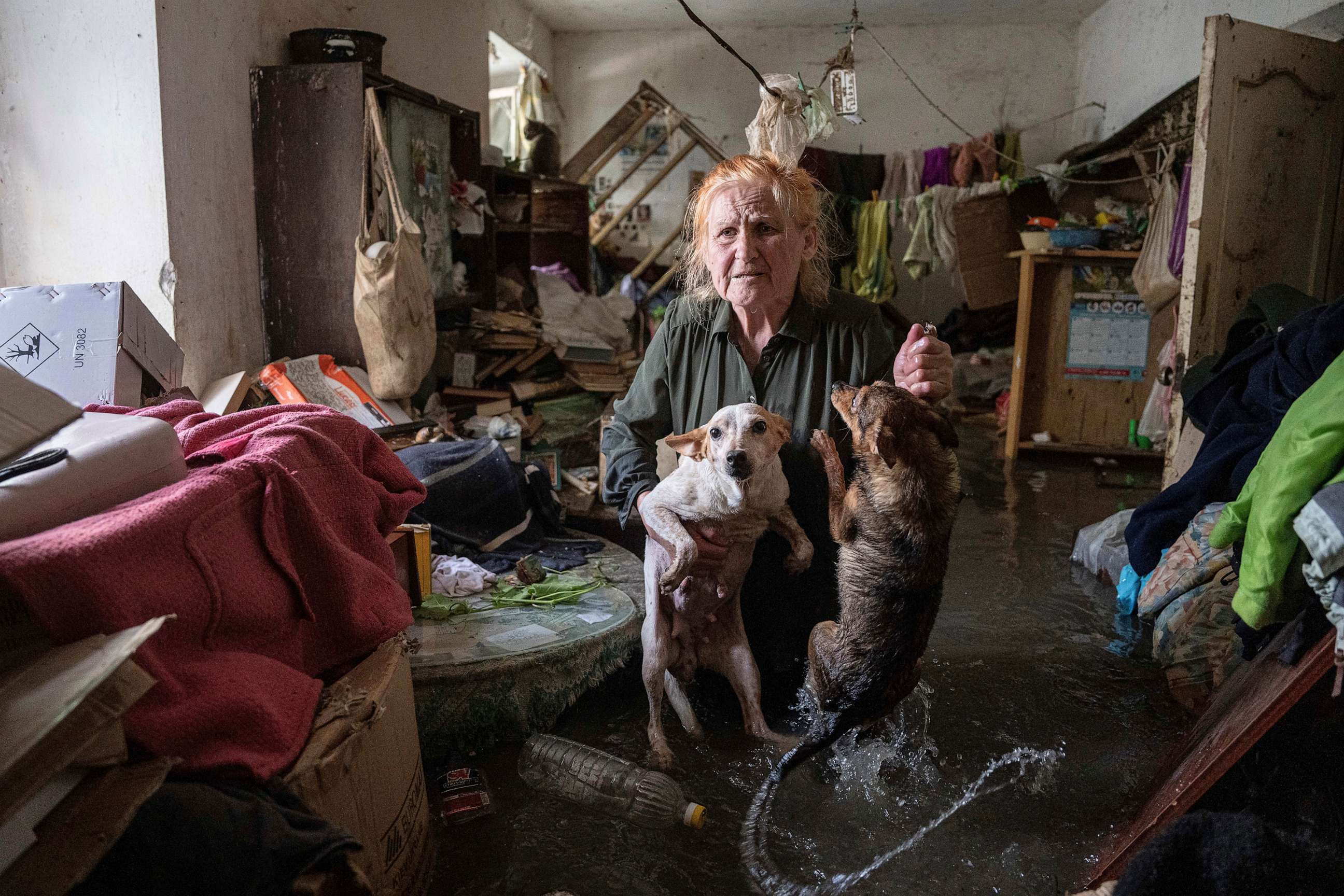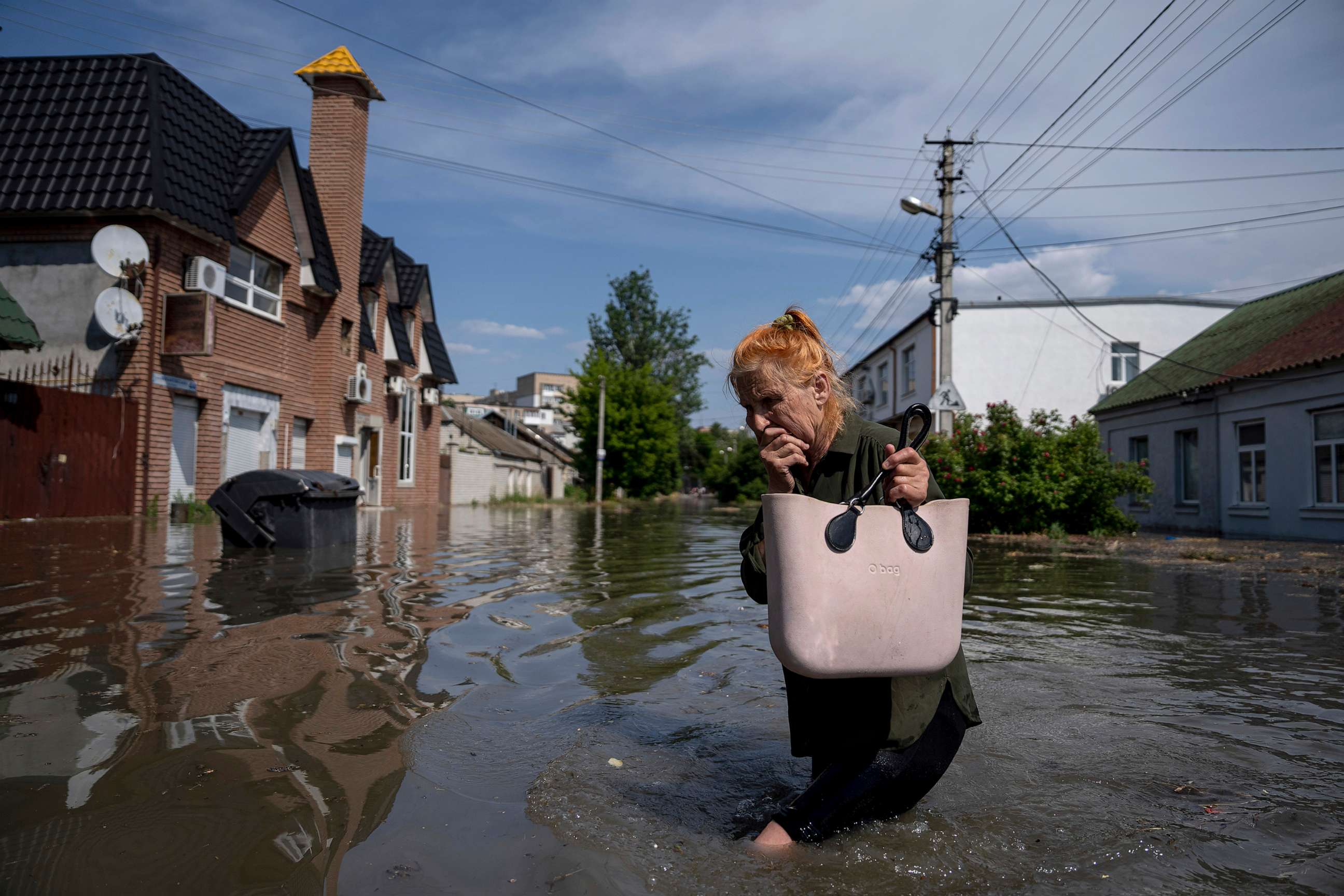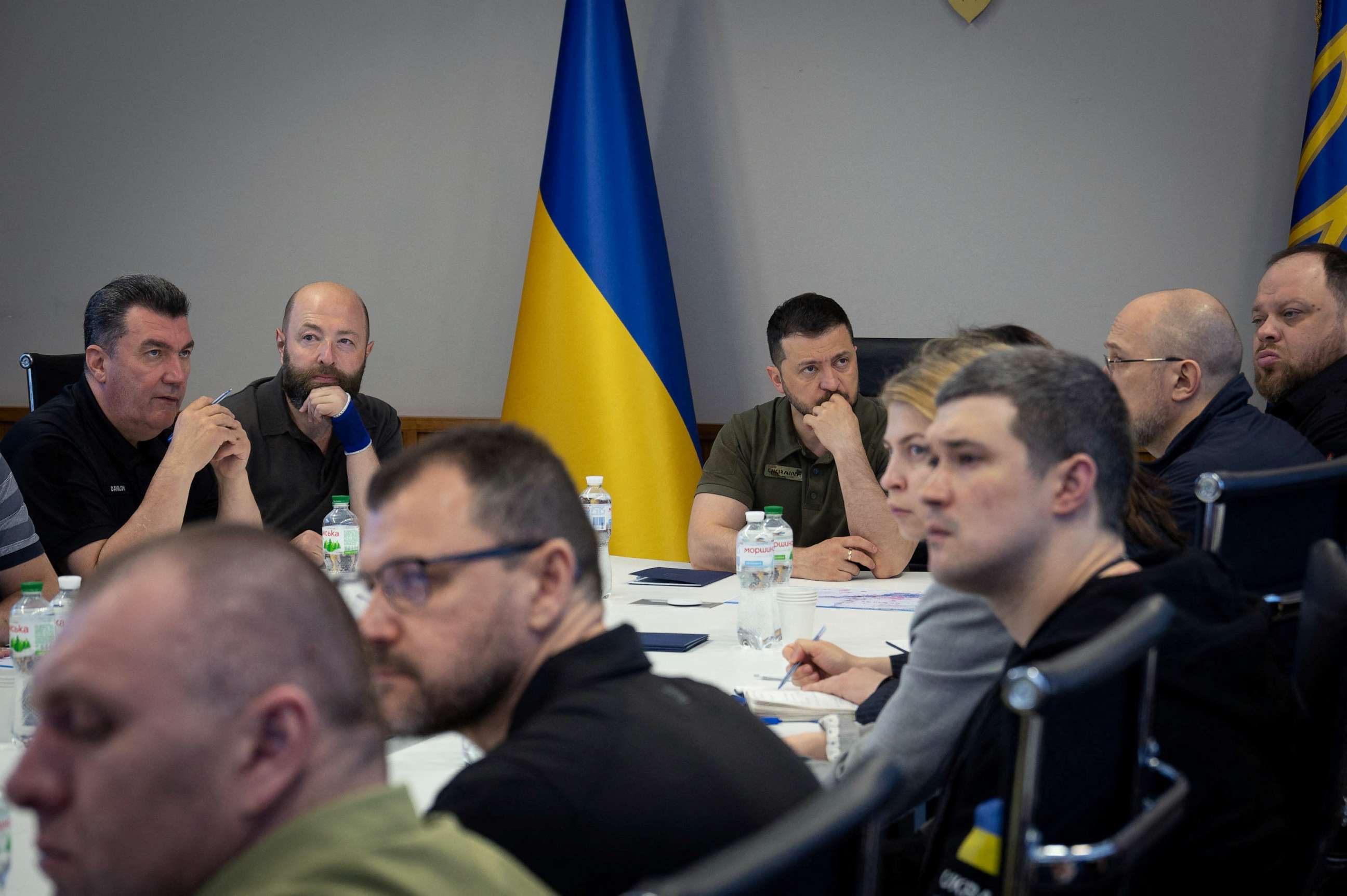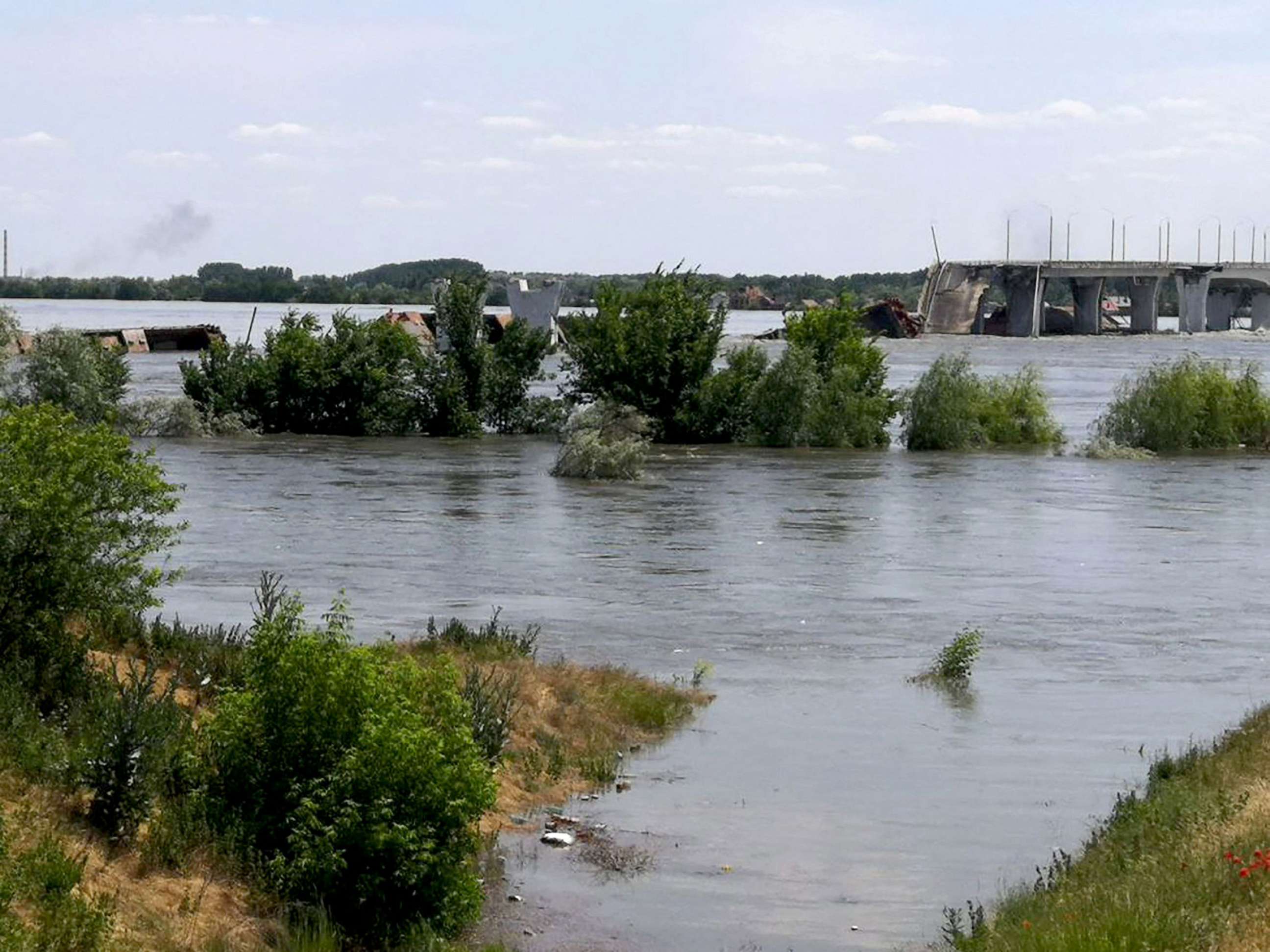Strategically vital Nova Khakovka dam blown up near border with Ukraine and Russia-controlled Crimea
The dam’s breach could have a huge impact on the wider war effort in Ukraine.
LONDON -- A section of a strategically vital Ukrainian dam and hydroelectric powerplant under Russian control has been blown up. Ukraine and Russia are blaming each other for the breach.
The Nova Kakhovka dam, which was built in 1956 and traverses the enormous Dnipro River in southern Ukraine, suffered an explosion overnight at approximately 2 a.m. local time as a deluge of water could be seen bursting through the dam that had previously held back more than 18 cubic kilometers of water -- comparable to the size of the Great Salt Lake in Utah.
The dam's breach could have a massive impact on the wider war effort between Russia and Ukraine.

A defiant President Volodymyr Zelenskyy held an emergency meeting of his National Security Council on Tuesday and blamed "Russian terrorists" for the dam explosion. In an address to the nation later in the day, Zelenskyy called the attack on the dam "an environmental bomb of mass destruction."
"The whole world will know about this Russian war crime, the crime of ecocide," he said in his speech. "For the sake of their own security, the world should now show that Russia will not get away with such terror."
Zelenskyy said he is awaiting a meeting with the UN Security Council about the situation.
The UN said it is rushing support to Ukraine, which includes drinking water, water purification tablets and other "critical" assistance.
"The United Nations has no access to independent information on the circumstances that led to the destruction in the Kakhovka hydroelectric power plant dam," the UN Secretary-General António Guterres said in a statement Tuesday. "But one thing is clear: this is another devastating consequence of the Russian invasion of Ukraine."

Meanwhile, an estimated 16,000 residents who live downriver were told to leave immediately after the explosion as the governor of Kherson ordered an immediate evacuation of citizens. Officials told residents they had five hours to get out, instructing them only to take essential documents and directing them to buses that would take them to higher ground.
Zelenskyy said crews are working hard to save as many people from the nearby areas and provide drinking water to those who received it from the Kakhovka reservoir.
"It is very important now to take care of each other and help as much as possible," he said.

The explosion at the Nova Kakhovka hydroelectric power plant, which seems to be beyond repair, could also affect the Zaporizhzhia Nuclear Power Plant which is located approximately 100 miles upstream.

The reservoir provides cooling water to the plant and the International Atomic Energy Agency, said it is "closely monitoring" the situation surrounding the dam.
The IAEA said later in the day that the water level at the plant has been falling throughout the day, but the facility has back-up options available and there is no short-term risk to nuclear safety and security.

"If and when the level goes below 12.7 metres, the ZNPP will no longer be able to pump water from the reservoir to replenish the reserves at the site. As the full extent of the damage to the dam is not yet known and the water loss rate is fluctuating, it is not possible to predict exactly when this might happen," the IAEA said in a statement. "If the current rate were to continue, however, this level could be reached in the next couple of days."
IAEA Director General Rafael Grossi noted that Ukraine had carried out stress tests following the Fukushima nuclear accident in 2011, including the scenario of the Nova Kakhovka dam failing.
“There is a preparedness for events like this at Ukraine’s Zaporizhzhya Nuclear Power Plant, which will help staff to handle this new challenging situation. But, clearly, this is making an already very difficult and unpredictable nuclear safety and security situation even more so," he said in a statement.
Zelenksyy said he spoke with Grossi about the situation at the plant.
"I called on the IAEA Director to directly and unequivocally condemn today's Russian act of terrorism and to maximize our efforts to liberate the ZNPP," Zelenskyy said.

Grossi said he will lead a IAEA rotation next week to assess the situation.

Editor's note: The headline has been adjusted to better indicate the border location.




